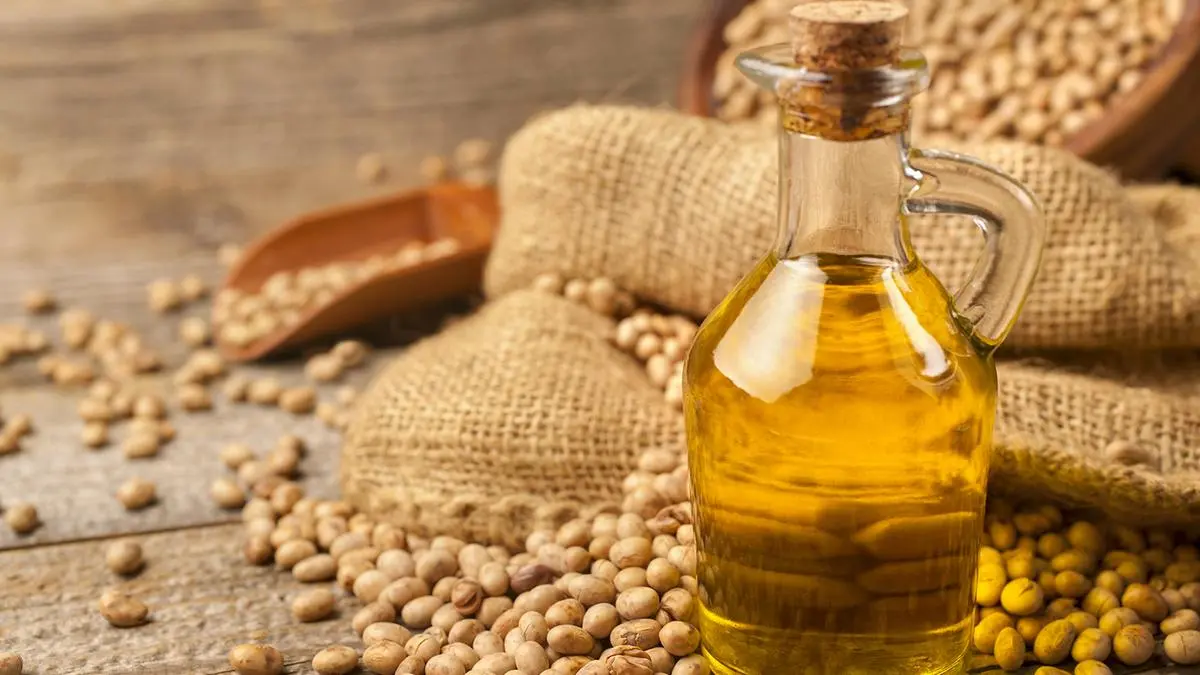
Homemade organically produced soybean oil on a rustic wooden table
| Photo Credit:
ddsign_stock
Pointing out that the government had altered edible oil import tariffs over 25 times in the last decade, a policy advocacy firm has suggested introduction of a “Tariff Policy Plan” (for 3–5 years) with annual reviews and ensure advance notice of 30-60 days for all duty revisions. But official sources said, it is difficult to control domestic prices with advance notice as there may be scarcity or excess volume of the edible oil, which is an essential commodity.
The research report titled “Tariff Volatility and Stakeholder Dynamics in India’s Edible Oil Sector,” prepared by VeK, the policy advisory and research firm, for the Centre for Economic Studies and Planning, Jawaharlal Nehru University, and industry chamber ASSOCHAM, was released in New Delhi on Tuesday.
From a policy standpoint, the government’s reliance on temporary tariff cuts to control inflation offers only short-term relief, the report said. “Without complementary interventions—such as public buffer stock mechanisms, enhanced supply-chain efficiency, and consumer subsidies targeted at vulnerable groups—tariff adjustments alone cannot insulate consumers from volatility. The Food Corporation of India (FCI) and State-level procurement agencies currently have limited capacity to manage edible oil buffers, leaving retail markets largely dependent on private imports and speculative inventory management.”
Diverting sourcing
Speaking to media, VeK’s Executive Chairman T S Vishwanath said there is need for greater interactions between the government and edible oil industry and the tariff (import duty) needs to be moved within a band so that the stakeholders do not get any surprise and plan their purchase decisions accordingly.
He said that there is a need to diversify the sourcing destinations beyond Indonesia and Malaysia. Many industry experts have pointed out that there are limited options before India and other countries importing palm oil from these south-east Asian countries, as both together have over 85 per cent share in global crude palm oil output.
On the self-sufficiency plan of the government, Vishwanath said it is not possible at least until next 10 years and the long-term impact will depend on government policies.
Focus on mustard, groundnut
Speaking at the event, former President of the Solvent Extractors Association of India (SEA) Atul Chaturvedi said the government needs to spend a significant amount on the National Edible Oil Mission for which a sizeable amount of the import tax collected on edible oil can be earmarked. He also said that based on the oilseeds content, the government should focus on two crops —mustard and groundnut —to increase the domestic oilseeds production whereas soyabean should be treated more as a protein provider crop.
The report said the import duty changes are being made mostly on an adhoc and reactive basis and the frequent revisions distorting market expectations, as well as complicating import planning, and raising transaction costs for refiners and traders.
“Duty hikes lead to immediate retail price escalation, while duty cuts often produce incomplete or delayed relief for consumers,” it said adding absence of a medium-term tariff framework reduces investment confidence and hinders policy credibility.
Published on October 14, 2025
